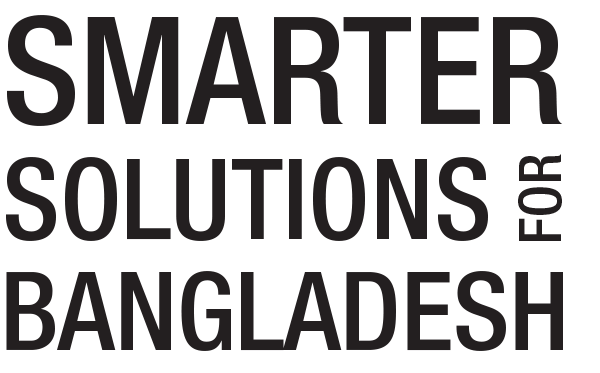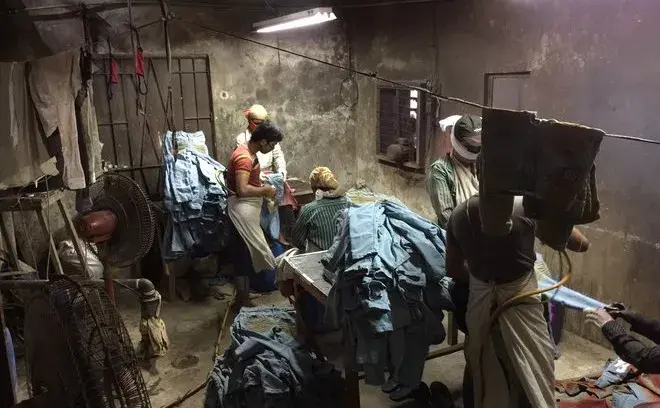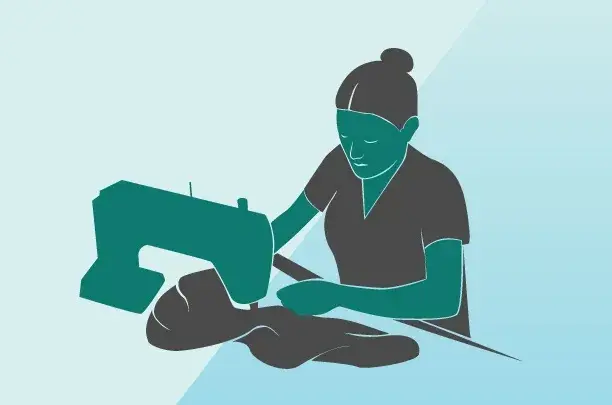Ready Made Garments
Bangladesh’s manufacturing sector has grown steadily as the country has industrialized. Manufacturing now accounts for 30 percent of GDP, nearly double the share that agriculture does. That industry is largely driven by the readymade garment (RMG) sector, which represents a whopping 85 percent of all export earnings and employs 4 million people, 80 percent of whom are women.
While global demand for RMG products is expected to surge in coming years, Bangladesh’s sector must continue to progress and evolve in order to take advantage. Some of the RMG industry’s most pressing current issues include poor compliance, inadequate infrastructure, and meager power capacities, all of which hinder overall competitiveness.
Proposed Strategies
| Strategy | Takas of benefits per taka spent |
|---|---|
| RMG factory compliance | 14 |
| RMG Palli special zone | 8 |
Cost Benefit Analysis of RMG Compliance to Increasing Presence of Ready Made Garments (RMG) and New Specialized RMG Industry Zone
New research by a team of four Bangladeshi economists, led by Wasel Bin Shadat, a lecturer at the University of Manchester, examines investments that will improve Bangladesh’s vital RMG sector, ensuring the industry is well placed to compete globally.
In terms of export earnings, employment generation, poverty alleviation and empowering women, the readymade garment industry plays a vital role in Bangladesh’s economy."
- Bin Shadat et al.
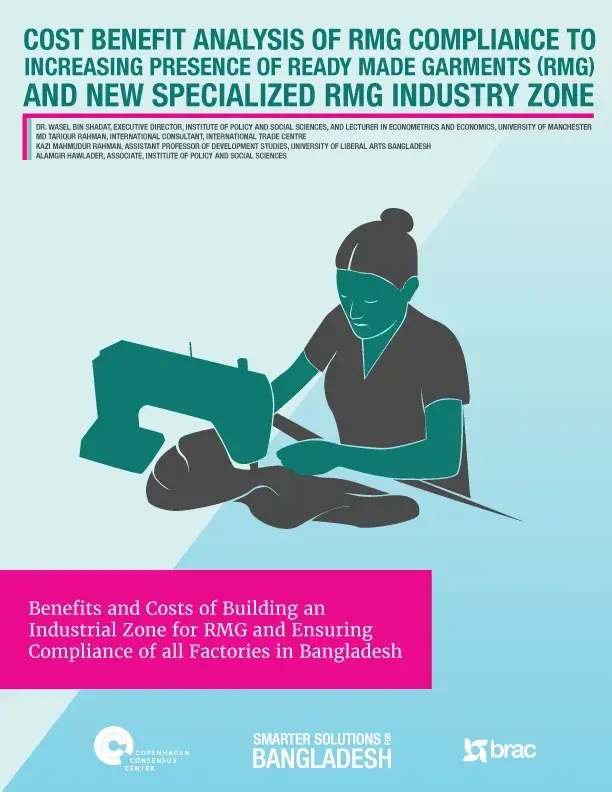
RMG: Smartest Strategies
In a series of op-eds published in The Daily Star and Prothom Alo, Bjorn Lomborg outlined the key findings of the path-breaking research produced by the Bangladesh Priorities project.
While global demand for RMG products is expected to surge in coming years, Bangladesh's sector must continue to progress and evolve in order to take advantage of it."
- Bjorn Lomborg
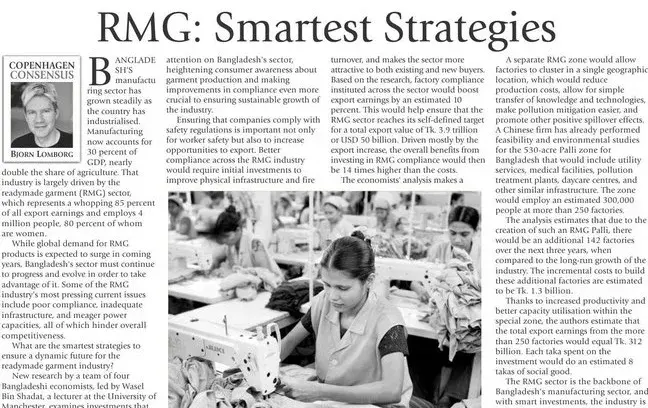
What's the smartest solution for Bangladesh?
The RMG sector is the backbone of Bangladesh's manufacturing sector, and with smart investments, the industry is poised to make even more future progress. Where would you choose to spend money if you were in charge and wanted to do the most good for Bangladesh? After reviewing 1,000s of pages of peer-reviewed research an Eminent Panel ranked 72 solutions from the best to the worst in terms of delivering the most social, economic and environmental value for money. Find out what they ranked the highest here.

